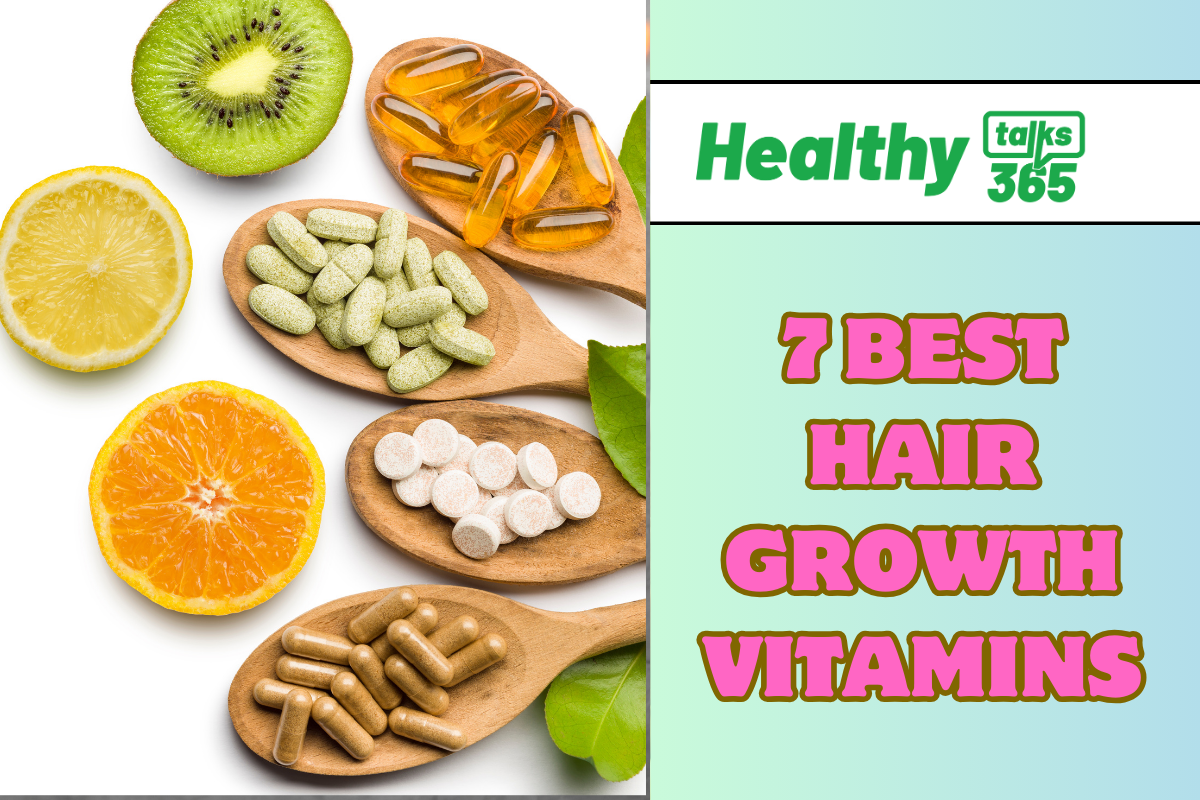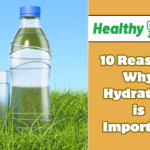7 BEST HAIR GROWTH VITAMINS
1. Biotin (vitamin B7) promotes hair growth
Biotin, also known as vitamin B7 or vitamin H, has garnered attention for its potential role in promoting hair growth and overall hair health.
As a water-soluble B vitamin, biotin plays a crucial role in the metabolism of carbohydrates, fats, and proteins, which are essential nutrients for healthy hair growth. Biotin is involved in the production of keratin, a protein that forms the structural basis of hair, skin, and nails.
Adequate biotin levels are necessary for maintaining the strength, elasticity, and thickness of hair strands, and deficiency in biotin can lead to hair thinning, brittleness, and even hair loss.
While research on the specific effects of biotin supplementation on hair growth is limited, some studies suggest that biotin supplements may help improve hair quality and stimulate hair growth, particularly in individuals with biotin deficiency or certain hair disorders.
2. Vitamin C is essential for hair structure
Vitamin C, also known as ascorbic acid, plays a crucial role in maintaining the health and structure of hair. As a powerful antioxidant, vitamin C helps protect hair follicles from damage caused by free radicals, which can lead to premature aging and hair loss.
Additionally, vitamin C is essential for the production of collagen, a protein that provides strength and structure to hair strands. Collagen is a key component of the hair follicle’s connective tissue, helping to anchor hair roots and promote healthy hair growth.
Adequate intake of vitamin C is necessary for the synthesis of collagen, ensuring that hair follicles receive the support they need to produce strong, resilient hair.
Furthermore, vitamin C enhances the absorption of iron, another essential nutrient for hair growth, by aiding in the conversion of iron into its more readily absorbable form. Iron deficiency can lead to anemia, which is associated with hair loss and thinning.

3. Vitamin D aids hair loss
Vitamin D, often referred to as the “sunshine vitamin,” is known for its crucial role in various bodily functions, including bone health, immune function, and mood regulation. While research on the specific effects of vitamin D on hair loss is still ongoing, there is emerging evidence suggesting a potential link between vitamin D deficiency and certain types of hair loss.
Vitamin D receptors are present in hair follicles, indicating its importance in hair growth and maintenance. Additionally, vitamin D is believed to play a role in the regulation of the hair growth cycle, influencing the transition between the different phases of hair growth.
Some studies have suggested that individuals with low levels of vitamin D may be more prone to experiencing hair loss or thinning.
Read Also:
11 Best Ways to Improve Your Digestion
4. Iron promotes good hair health and growth
Iron is a vital mineral that plays a significant role in promoting optimal hair health and supporting healthy hair growth. As an essential component of hemoglobin, the protein in red blood cells responsible for transporting oxygen throughout the body, iron ensures that hair follicles receive an adequate supply of oxygen and nutrients necessary for hair growth.
Iron deficiency, also known as anemia, can lead to insufficient oxygen delivery to the scalp and hair follicles, resulting in weakened hair shafts, hair loss, and slow hair growth.
Additionally, iron deficiency can disrupt the hair growth cycle, leading to increased shedding and thinning of the hair. Ensuring adequate intake of iron through diet or supplementation is crucial for maintaining healthy hair. Iron-rich foods such as lean meats, poultry, fish, beans, lentils, spinach, and fortified cereals can help replenish iron stores in the body and support optimal hair growth.
5. Zinc helps in hair growth
Zinc is a crucial mineral that contributes to various physiological processes in the body, including supporting optimal hair growth and hair health. This essential nutrient plays a role in the synthesis of proteins, including keratin, which is the main structural component of hair.
Zinc also helps regulate the production of sebum, the natural oil produced by the scalp that moisturizes and protects the hair follicles. Additionally, zinc is involved in DNA synthesis and cell division, processes that are essential for the growth and regeneration of hair follicles.
Research suggests that zinc deficiency may contribute to hair loss and thinning, as inadequate levels of zinc can disrupt the hair growth cycle and lead to weakened hair shafts.

6. Vitamin A is essential for functioning of hair follicles
Vitamin A, a fat-soluble vitamin, is indispensable for the proper functioning of hair follicles and the maintenance of healthy hair growth. This essential nutrient plays a vital role in various physiological processes, including cell differentiation, which is crucial for the growth and regeneration of hair follicles.
Vitamin A also supports the production of sebum, the natural oil secreted by the scalp that moisturizes and protects the hair strands. Additionally, vitamin A helps in the synthesis of keratin, the protein that forms the structural foundation of hair.
Adequate levels of vitamin A are necessary to ensure that hair follicles remain healthy and capable of producing strong, resilient hair. However, excessive intake of vitamin A can have adverse effects on hair health and overall well-being, leading to hair loss and other health complications.
7. Omega-3 Fatty Acids help in maintaining healthy scalp
Omega-3 fatty acids, essential nutrients found primarily in fatty fish, nuts, and seeds, are renowned for their numerous health benefits, including their role in maintaining a healthy scalp.
These fatty acids play a vital role in the body’s inflammatory response, helping to reduce inflammation throughout the body, including the scalp.
Inflammation of the scalp can lead to various scalp conditions, such as dandruff, itching, and flakiness, which can compromise overall scalp health. Omega-3 fatty acids also contribute to the structural integrity of cell membranes in the scalp, ensuring that skin cells remain hydrated and flexible.




